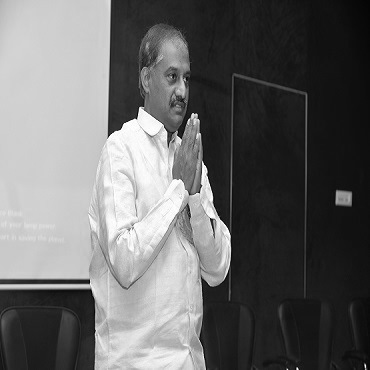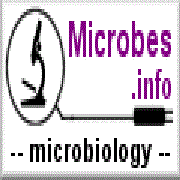
Antibiotics 2019

Theme: Improving world health with antibiotics
2nd World Congress on Antibiotics scheduled in London, UK during October 16-17, 2019 with the theme Improving World Health with Antibiotics. Antibiotics 2019 conference is organized to unite scientists, researchers, teachers, business delegates, students and research associates to communicate about their experience, knowledge and also about the on-going research. Antibiotics 2019 conference focuses on a wide array of sessions which are of scientific interest and also need of the hour which incorporate: Antibiotics – General and meticulously, Pharmacology of Antibiotics, Antibiotics for Emerging & Re-Emerging Diseases, Microorganisms in Recent Drug discovery, Over the Counter Antibiotics, Alternative to Antibiotics, Genetics of Antimicrobial Resistance, Antibiotic Shortage: A Serious Safety Concern, Generic Antibiotics, Veterinary Antibiotics. Antibiotics 2019 conference gathering incorporates Plenary lectures, keynote lectures by eminent personalities from around the world in addition to poster presentation, young researcher sessions, symposiums, workshop, and Exhibitors. Antibiotics 2019 conference is confident that it will definitely offer all participants an unforgettable experience in exploring new opportunities. London is the capital and most populous city of England and the United Kingdom. Standing on the River Thames in the south east of the island of Great Britain, London has been a major settlement for two millennia. We hope you will join us in London, UK.
Target Audience:
- Pharmaceutical /Medicine Students,
- Life Science scientists
- Pharmaceutical Researchers
- Pharmacy Faculty
- Pharmacology Universities
- Business Entrepreneurs
- Training Institutes
- Pharmaceutics Manufacturing Companies
- R&D Laboratories
Session 1 - Antibiotics: General and meticulously
Antibiotics are powerful medicines that fight bacterial infections. Used properly, antibiotics can save lives. They either kill bacteria or keep them from reproducing. When harmful bacteria are excessive our immune system cannot fight them all and Antibiotics are useful in this scenario. The session is open to discuss on discovery of antibiotics, mechanism, types of antibiotics, usage of drugs, side effects and the serious issues of overdose, Interaction with other drugs, Allergic reactions caused by the use of antibiotics, Applications of antibiotics, New antimicrobials, including antibiotics, disinfectants, metals.
Antibiotics conference | Antibiotics congress | Antibiotics Meetings | Antibiotic events | Antibiotics symposium| Antibiotics workshop | Antimicrobial Resistance
Related Conferences:
20th International Conference and Exhibition on Pharmaceutics and Novel Drug Delivery Systems, March 18-20, 2019 Edinburgh, Scotland; 21st Annual European Pharma Congress, May 20-21, 2019 Zurich, Switzerland; 22nd International Conference and Exhibition on Pharmaceutical Formulations, June 03-04, 2019 London, UK; 14th International Conference on Pharmacology and Toxicology, July 18-19, 2019 Zurich, Switzerland.
Session 2 - Pharmacology of Antibiotics
Antibiotics form part of a wider range of antimicrobial agents, a group which also includes antifungals, antivirals, antiprotozoal and disinfectants. This group is also known as chemotherapeutic agents. The session is open for clinical pharmacology of antibiotics, Drug therapy, Pathophysiology, Pharmacokinetics and Pharmacodynamics, Drug screening, characterization, synthesis and assays for therapeutic efficacy, Drug disposition, Regulations needed for the approval of antibiotics, Requirements for production of antibiotics, Clinical trials, Structure – Activity relationship, Antibiotic prophylaxis, Synthesis of antimicrobials, New methods of testing antimicrobial activity, Synergism between different types of antimicrobials, Design and testing of antimicrobial surfaces.
Antibiotics conference | Antibiotics congress | Antibiotics Meetings | Antibiotic events | Antibiotics symposium| Antibiotics workshop | Antimicrobial Resistance
Related Conferences:
20th International Conference and Exhibition on Pharmaceutics and Novel Drug Delivery Systems, March 18-20, 2019 Edinburgh, Scotland; 21st Annual European Pharma Congress, May 20-21, 2019 Zurich, Switzerland; 22nd International Conference and Exhibition on Pharmaceutical Formulations, June 03-04, 2019 London, UK; 14th International Conference on Pharmacology and Toxicology, July 18-19, 2019 Zurich, Switzerland.
Session 3 - Antibiotics for Emerging and Re-Emerging Diseases
Antibiotic-resistant strains of pathogenic bacteria are increasingly prevalent in hospitals and the community. New antibiotics are needed to combat these bacterial pathogens, but progress in developing them has been slow. The session is open to discuss on synthetic tailoring, discovery of new scaffolds, designing screens that avoid rediscovering old scaffolds, repurposing libraries of synthetic molecules for use as antibiotics, Exploring microbial niches for products, molecular target selection, improving libraries to overcome resistance, Safety and efficacy, Vaccines available for the diseases, Phages and parasitic bacteria, Epidemiology and spread of microbes and resistance traits
Antibiotics conference | Antibiotics congress | Antibiotics Meetings | Antibiotic events | Antibiotics symposium| Antibiotics workshop | Antimicrobial Resistance
Related Conferences:
20th International Conference and Exhibition on Pharmaceutics and Novel Drug Delivery Systems, March 18-20, 2019 Edinburgh, Scotland; 21st Annual European Pharma Congress, May 20-21, 2019 Zurich, Switzerland; 22nd International Conference and Exhibition on Pharmaceutical Formulations, June 03-04, 2019 London, UK; 14th International Conference on Pharmacology and Toxicology, July 18-19, 2019 Zurich, Switzerland.
Session 4 - Microorganisms in Recent Drug discovery
The sequencing of the first complete bacterial genome in 1995 heralded a new era of hope for antibacterial drug discoverers, who now had the tools to search entire genomes for new antibacterial targets. The session is open to genomics approach to antibacterial discovery, target-based approach, Screening for new classes of drugs with novel modes of action, optimization of novel chemical structures, and development of novel non antimicrobial-based methods, Discovery of new antibiotics and related types of biologically active substances, Production, isolation, characterization, structure-activity relationships of antibiotics and related types of biologically active substances, Biosynthesis, bioconversion, taxonomy, genetic studies on producing microorganisms, Improvement of production of antibiotics and related types of biologically active substances
Antibiotics conference | Antibiotics congress | Antibiotics Meetings | Antibiotic events | Antibiotics symposium| Antibiotics workshop | Antimicrobial Resistance
Related Conferences:
20th International Conference and Exhibition on Pharmaceutics and Novel Drug Delivery Systems, March 18-20, 2019 Edinburgh, Scotland; 21st Annual European Pharma Congress, May 20-21, 2019 Zurich, Switzerland; 22nd International Conference and Exhibition on Pharmaceutical Formulations, June 03-04, 2019 London, UK; 14th International Conference on Pharmacology and Toxicology, July 18-19, 2019 Zurich, Switzerland.
Session 5 - Over the Counter Antibiotics
Antibiotics come under Schedule H. This is a class of prescription drugs appearing as an appendix to the Drugs and Cosmetics Rules, 1945 introduced in 1945. These are drugs which cannot be purchased over the counter without the prescription of a qualified doctor. The manufacture and sale of all drugs are covered under the Drugs and Cosmetics Act and Rules. It is revised at times based on the advice of the Drugs Technical Advisory Board, part of the Central Drugs Standard Control Organization in the Ministry of Health and Family Welfare. OTC sales make them easily available, which otherwise means their irrational use. This paves way for rapid emergence of resistant strains of dangerous bacteria with serious implications for the future of our society.
Antibiotics conference | Antibiotics congress | Antibiotics Meetings | Antibiotic events | Antibiotics symposium| Antibiotics workshop | Antimicrobial Resistance
Related Conferences:
20th International Conference and Exhibition on Pharmaceutics and Novel Drug Delivery Systems, March 18-20, 2019 Edinburgh, Scotland; 21st Annual European Pharma Congress, May 20-21, 2019 Zurich, Switzerland; 22nd International Conference and Exhibition on Pharmaceutical Formulations, June 03-04, 2019 London, UK; 14th International Conference on Pharmacology and Toxicology, July 18-19, 2019 Zurich, Switzerland.
Session 6 - Alternative to Antibiotics
The antibiotic resistance problem is caused by the evolution and transfer of genes that confer resistance to medically important antibiotics into human pathogens. The acquisition of such resistance genes by pathogens complicates disease treatment, increases health care costs, and increases morbidity and mortality in humans and animals. As antibiotic resistance continues to evolve, antibiotics of so-called last resort become even more precious. Reducing or preventing the dissemination of antibiotic resistance genes into human pathogens is currently of high international importance. The session is open to Antibiotic prudency, bacteriophage therapy, predatory bacteria, bacteriocins, and competitive exclusion of pathogens, Immunotherapeutics, Antibodies, Vaccines and gut microbiota modulation.
Antibiotics conference | Antibiotics congress | Antibiotics Meetings | Antibiotic events | Antibiotics symposium| Antibiotics workshop | Antimicrobial Resistance
Related Conferences:
20th International Conference and Exhibition on Pharmaceutics and Novel Drug Delivery Systems, March 18-20, 2019 Edinburgh, Scotland; 21st Annual European Pharma Congress, May 20-21, 2019 Zurich, Switzerland; 22nd International Conference and Exhibition on Pharmaceutical Formulations, June 03-04, 2019 London, UK; 14th International Conference on Pharmacology and Toxicology, July 18-19, 2019 Zurich, Switzerland.
Session 7 - Genetics of Antimicrobial Resistance
Acquired bacterial antibiotic resistance can result from the mutation of normal cellular genes, the acquisition of foreign resistance genes, or a combination of these two mechanisms. The session is open for most common resistance mechanisms employed by bacteria, alteration of the antimicrobial, performing / introducing mutation in the antimicrobial target site, active efflux of the antimicrobial across the cell membrane, types of antibiotic resistance, about horizontal gene transfer, molecular genetic work.
Antibiotics conference | Antibiotics congress | Antibiotics Meetings | Antibiotic events | Antibiotics symposium| Antibiotics workshop | Antimicrobial Resistance
Related Conferences:
20th International Conference and Exhibition on Pharmaceutics and Novel Drug Delivery Systems, March 18-20, 2019 Edinburgh, Scotland; 21st Annual European Pharma Congress, May 20-21, 2019 Zurich, Switzerland; 22nd International Conference and Exhibition on Pharmaceutical Formulations, June 03-04, 2019 London, UK; 14th International Conference on Pharmacology and Toxicology, July 18-19, 2019 Zurich, Switzerland.
Session 8 - Antibiotic Shortage: A Serious Safety Concern
Antibiotic shortage is of great concern to FDA and healthcare community as many of the antibiotics were the sole drugs to treat certain antibiotic-resistant infections for certain infectious conditions. Drug shortages pose a serious challenge for health care institutions, often interfering with patient care. A common practice during a drug shortage is to select an alternate therapeutic; however, these agents often present challenges and may create safety concerns. Patient harms including adverse events and medication errors may occur. Patients may also file complaints because of drug shortages. The session is open to discuss on Manufacturing site problems, shortage of raw materials, low commercial incentives, lack of approved manufacturers, Defect in packaging and labelling.
Antibiotics conference | Antibiotics congress | Antibiotics Meetings | Antibiotic events | Antibiotics symposium| Antibiotics workshop | Antimicrobial Resistance
Related Conferences:
20th International Conference and Exhibition on Pharmaceutics and Novel Drug Delivery Systems, March 18-20, 2019 Edinburgh, Scotland; 21st Annual European Pharma Congress, May 20-21, 2019 Zurich, Switzerland; 22nd International Conference and Exhibition on Pharmaceutical Formulations, June 03-04, 2019 London, UK; 14th International Conference on Pharmacology and Toxicology, July 18-19, 2019 Zurich, Switzerland.
Session 9 - Generic Antibiotics
Generic drugs reduce drug expenses and thereby national medical expenditure. Because generic drugs provide advantages for both public administration and consumers, it is expected that they will be more widely used in the future. The session is open to drug components, levels of impurity, pharmacokinetics, pharmacokinetic/pharmacodynamics relationship, in vitro effectiveness, therapeutic effectiveness in experimental models, marketing authorization of generic antibiotic drugs.
Antibiotics conference | Antibiotics congress | Antibiotics Meetings | Antibiotic events | Antibiotics symposium| Antibiotics workshop | Antimicrobial Resistance
Related Conferences:
20th International Conference and Exhibition on Pharmaceutics and Novel Drug Delivery Systems, March 18-20, 2019 Edinburgh, Scotland; 21st Annual European Pharma Congress, May 20-21, 2019 Zurich, Switzerland; 22nd International Conference and Exhibition on Pharmaceutical Formulations, June 03-04, 2019 London, UK; 14th International Conference on Pharmacology and Toxicology, July 18-19, 2019 Zurich, Switzerland.
Session 10 - Veterinary Antibiotics
Antibiotic drugs are commonly used in veterinary medicine to treat infectious diseases that are caused by bacteria and certain other microorganisms. There are many different classes of antibiotics available for use in animals where some are effective against a wide range of organisms, while others are more closely targeted. When given a prescription from your veterinarian for your pet, make sure that it is given exactly as instructed and that the entire prescription is given. Not following dosage schedules or not giving all of the prescription can cause a relapse, a reinfection, or development of antibiotic-resistant organisms. The session is open to using specific and appropriate supportive treatment to improve the animal’s ability to overcome the infection and associated disease conditions.
Antibiotics conference | Antibiotics congress | Antibiotics Meetings | Antibiotic events | Antibiotics symposium| Antibiotics workshop | Antimicrobial Resistance
Related Conferences:
20th International Conference and Exhibition on Pharmaceutics and Novel Drug Delivery Systems, March 18-20, 2019 Edinburgh, Scotland; 21st Annual European Pharma Congress, May 20-21, 2019 Zurich, Switzerland; 22nd International Conference and Exhibition on Pharmaceutical Formulations, June 03-04, 2019 London, UK; 14th International Conference on Pharmacology and Toxicology, July 18-19, 2019 Zurich, Switzerland.
Introduction:
Antibiotics are the ‘wonder drugs’ to combat microbes. For decades, multiple varieties of antibiotics have not only been used for therapeutic purposes but practiced prophylactically across other industries such as agriculture and animal husbandry. Uncertainty has arisen, as microbes have become resistant to common antibiotics while the host remains unaware that antibiotic resistance has emerged. Antibiotic-resistant infections correlate with the level of antibiotic consumption. Non-judicial use of antibiotics is mostly responsible for making the microbes resistant. The antibiotic treatment repertoire for existing or emerging hard-to-treat multidrug-resistant bacterial infections is limited, resulting in high morbidity and mortality report.
Scope:
Millions of metric tons of newer classes of antibiotics have been produced in last 60 years since its inception. Increased demand for antibiotics across many sectors has allowed for less expensive and off-label uses of drugs. Conversely, due to the enormous and irresponsible use of the antibiotics, has contributed significantly to the advent of the resistant strains. Production of new antibiotics was directly proportional to the development of resistant strains. However, the mainstream approach in fighting against the diseases is now focused on the modification of existing antibiotics to combat emerging and re-emerging resistance of pathogens globally. Resistance to an antibiotic develops in no time and hence, is a big matter of concern. In the developing world, almost all the antibiotics are available over the counter and can be bought without any medical prescription which is one of the most important factors in causing the resistance. Therefore, if the resistance to the antibiotics needs to be curbed, the only way shall be to educate the patients and the general public.
Global Business:
Certain factors which drive market growth include Emergence of anti-MRSA drugs, Development of generic drugs, and vulnerable aging population. As per the current statistics, there are several dominant players and those with innovative thoughts and advancement of techniques, skills hold a significant market share for antibiotics. Almost 80% of the prescription antibiotics are generics which help many people to afford as there is decline in price thus improving the health of an individual. However, indiscriminate drug usage also leads to drug resistance and other complications which are not easy to solve. There is a wide scope for combinational formulations as drug resistance is increasing and discovery of lead molecules is at a slow pace. Global Antibiotics market was valued at USD 42653.89 million in 2018 and is estimated to be valued at USD 56369.92 million in 2024, witnessing a CAGR of 4.7%.
Future Scope:
The ways we have developed, used and protected antibiotics have led predictably to our current crisis of rising antibiotic resistance and declining new treatments. If we want to stave off a post antibiotic era, we need to fundamentally change our approach. Ultimately, there is need for a coordinated national action plan to combat resistance.
Conclusion:
Antibiotic resistance is at all-time high in all the parts of the world. Despite measures taken by some member states of WHO, antibiotic use in humans, animals, and agriculture is increasing. The high economic burden in the healthcare sector has become a burning issue, due to extended hospital stays, isolation wards, stringent infection control measures and treatment failures. The public health leaders should establish a pan surveillance system coordinated at national and international levels, on-going analysis and a mandatory reporting system for antibiotic resistance. Both domestic and global policies need to be conventional and adhered-to to stop the overuse and misuse of antibiotics.
Global Universities in USA:
University of Southern California
CUNY York College
Purdue University
University of Wisconsin-Madison
Albany College of Pharmacy and Health Sciences
University of North Carolina
University of Colorado
Oregon State University
Massachusetts College of Pharmacy and Health Sciences
University of Florida College of Pharmacy
Global Universities in Europe:
University of Oxford
University of Cambridge
University College London
University of Edinburgh
Imperial College London
University of Manchester
Catholic University of Leuven
University of Amsterdam
King's College London
University of Copenhagen
Global Universities in Asia:
University of Tokyo
National University of Singapore
Kyoto University
University of Hong Kong | Peking University
Seoul National University
National Taiwan University
Osaka University
Tsinghua University
Chinese University of Hong Kong
The Hong Kong University of Science and Technology
Societies in USA:
Alliance for the Prudent Use of Antibiotics
Center for Disease Control and Prevention
U.S. Food and Drug Administration
Transatlantic task force on urgent antimicrobial resistance
Global Antibiotic Resistance Partnership
Center for a Livable Future
Infectious Diseases Society of America
Societies in Europe:
The World Alliance against Antibiotic Resistance
Antibiotic Research UK
BEAM Alliance - Biotechs from Europe innovating in anti-microbial resistance
ReAct – Action on Antibiotics, Compassion in World Farming
Societies in Asia and Pacific:
Australian Society of Antimicrobials
Australasian Society for Infectious Diseases
The Philippine Society for Microbiology
Israel Society for Microbiology
Chinese Society for Microbiology
Iranian Society of Microbiology
References:
www.mordorintelligence.com/industry-reports/antibiotics-market
www.ncbi.nlm.nih.gov/pmc/articles/PMC5573035/
www.ncbi.nlm.nih.gov/pmc/articles/PMC4176319/
- Antibiotics: General and meticulously
- Pharmacology of Antibiotics
- Antibiotics for Emerging & Re-Emerging Diseases
- Microorganisms in Recent Drug discovery
- Over the Counter Antibiotics
- Alternative to Antibiotics
- Genetics of Antimicrobial Resistance
- Antibiotic Shortage: A Serious Safety Concern
- Generic Antibiotics
- Veterinary Antibiotics
- Medical Microbiology Reports
7 Organizing Committee Members
1 Renowned Speakers
Gilles Courtemanche
BIOASTER Technology Research Institute
France


































































































































